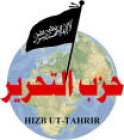
Prague, 23 August 2004 (RFE/RL) — During the past decade, the Islamist group Hizb ut-Tahrir has become increasingly active — and controversial — in Central Asia.
Although the group officially espouses peaceful means to achieve its goal of establishing a caliphate, it’s been blamed by Central Asian governments for a recent upsurge in Islamist violence. Uzbek authorities suspect it may be behind a series of recent attacks that killed several people there.
David Lewis, who runs the Central Asia project for the International Crisis Group (ICG) in the Kyrgyz city of Osh, says the group is feeding on discontent. He says many — especially the young — are attracted to it as an alternative form of political opposition or expression.
But he says Hizb ut-Tahrir’s influence should not be exaggerated as it has little public support in Central Asia.
“It has been spreading but not as much as [Central Asian] governments suggest. There have been arrests in southern Tajikistan and there are occasional reports of arrests in northern Kyrgyzstan. [But] its core constituency is the Uzbek territory. In Kazakhstan they have gained increasing support. [However] for most young people of the region, it’s not an attractive option,” Lewis said.
Although Hizb ut-Tahrir is not known for committing terrorist acts, it’s opposed by Central Asian governments at odds with the group’s political objectives. Kenzhebulat Beknazarov, a spokesman for the Kazakh National Security Committee, told RFE/RL in the capital Astana.
“In general, Hizb ut-Tahrir and other similar organizations are serving against our constitution. Of course it is the goal of our state authorities and the National Security Committee to fight them, it is our obligation,” Beknazarov said.
Uzbekistan is leading the way by arresting and sentencing thousands of members to prison terms. According to independent Uzbek estimates, there may be as many as 5,000 alleged Hizb ut-Tahrir members in Uzbek prisons.
Twice this year, Uzbekistan was targeted by waves of violence, including bombings, for which authorities were quick to blame Hizb ut-Tahrir.
But the group claims to reject violence. Hizb ut-Tahrir member Sultan Badalov told RFE/RL in the Kyrgyz city of Jalalabad.
“In Islam, to kill someone and to shed his blood is a sin. It is forbidden to kill an innocent person, even if he is from another confession. Hizb ut-Tahrir is conducting political and ideological work only. And it is against armed fighting. Hizb ut-Tahrir does not have relations with terrorist actions,” Badalov
In some instances, the governments have joined forces with mainstream religious figures to oppose Hizb ut-Tahrir. Imam Saidbek Boyzoda told RFE/RL recently in Dushanbe.
“Of course, Hizb ut-Tahrir is a threat to our society. It’s a religious threat [because] it does not serve Islam. It only brings tension. Hizb ut-Tahrir is opposed by the police because they don’t know the group’s financial sources. The danger is [an] explosion because they [have fragmented] society. They use Islam as a mask but their words and actions don’t have any link to Islam,” Boyzoda said.
The utopia of a caliphate may not be achievable. But analysts warn that repression of Hizb ut-Tahrir members has radicalized the movement and threatened to sow the seeds of greater Islamist extremism.
Regional security expert Ahmed Rashid, the author of Jihad: The Rise of Militant Islam in Central Asia, recently told RFE/RL, “The enormous repression of the regimes and the lack of any kind of political expression naturally forces politically oriented people to go underground and to become radicalized, and then join these Islamist groups.”
(RFE/RL’s Tajik, Kyrgyz, and Kazakh services contributed to this report.)
© 2004. RFE/RL, Inc. Reprinted with the permission of Radio Free Europe/Radio Liberty, 1201 Connecticut Ave., N.W. Washington DC 20036.
Website: http://www.rferl.org/